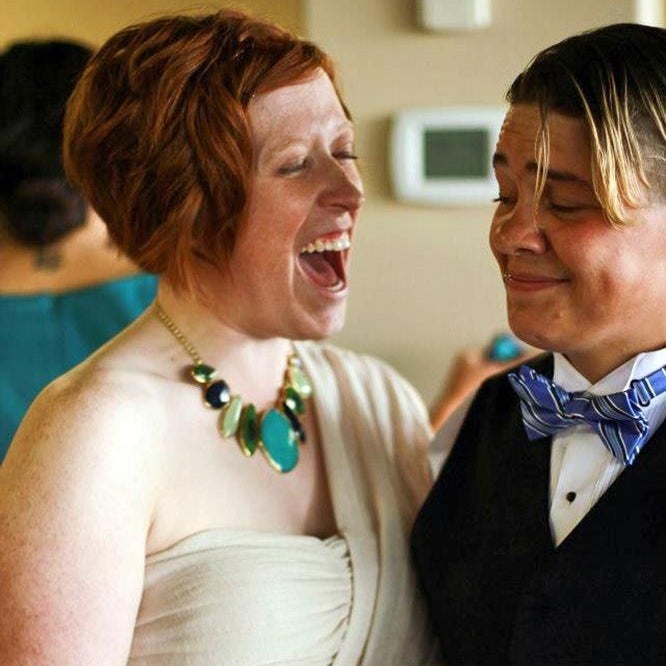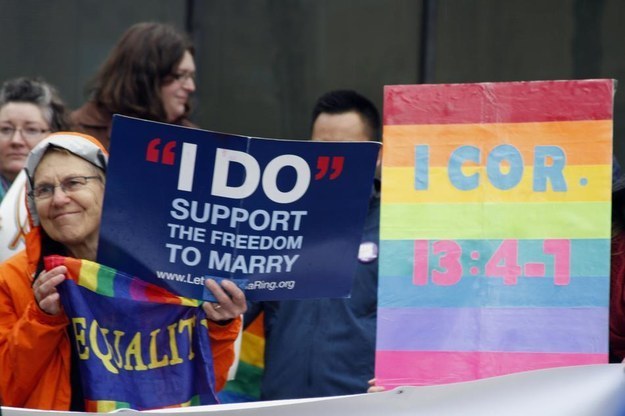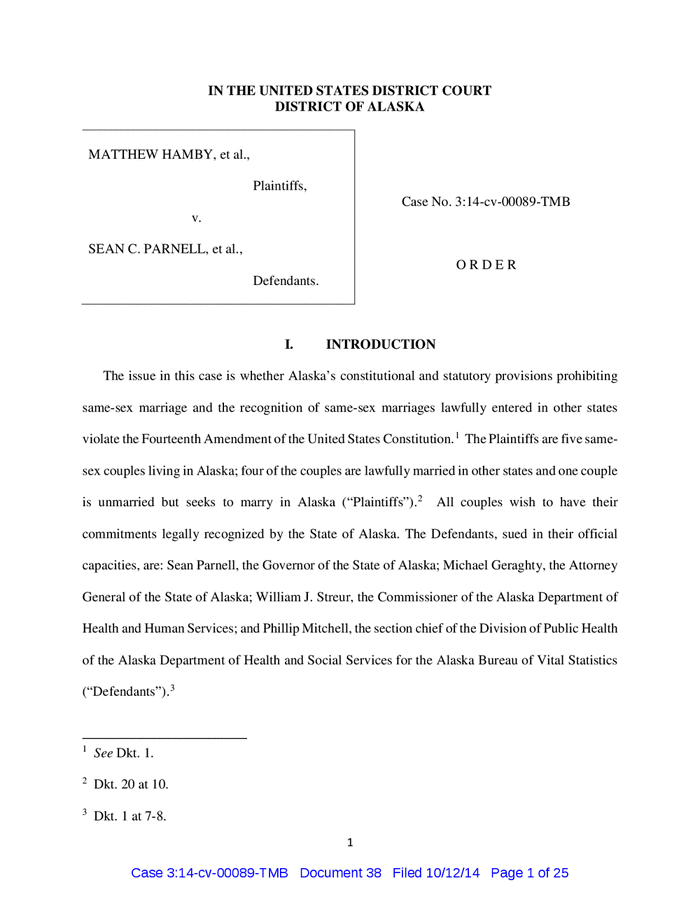
A judge struck down Alaska's laws banning marriage for same-sex couples on Sunday and ordered government officials to immediately recognize their rights.
U.S. District Court Judge Timothy Burgess said the state deprived same-sex couples their rights to due process and equal protection under the laws. Because the facts of the case were not in dispute, he immediately struck down the unconstitutional laws and ruled in favor of the five gay couples who filed the lawsuit.
Since 1998, Alaska has defined marriage as between one man and one woman through a state constitutional amendment approved by 68% of voters. State law also specifically says out-of-state marriages of same-sex couples will not be recognized in Alaska.
Though the ban was approved by a majority of voters, Burgess, appointed to the bench in 2005 by President George W. Bush, said it was the job of the Constitution to protect the fundamental rights of minorities. Fundamental rights have long been understood to include personal choices about marriage and family, he said, and same-sex couples' marriages should be no different.
"While homosexuality and the union of same-sex couples through marriage may be against the beliefs or beyond the moral parameters of some Americans, the core purpose of the 14th Amendment is to protect and individual's freedom," he said.


The couple in the left photo, Tracey Wiese and Kat Cortez, and the couple in the right photo, Chris Shelden and Matt Hamby, joined three other same-sex couples on May 12 in suing the state of Alaska in federal court, arguing the state’s constitutional ban on same-sex marriage violates their rights to due process and equal protection under the U.S. Constitution.
His ruling goes on to call the ban discriminatory, even if supporters said they only hoped to protect "traditional marriage."
"Adherence to tradition is not a valid basis to take away an individual's constitutional rights, particularly when experience reveals that the injustice no longer serves, or even acts as a detriment to, the general welfare."
Supporters of the ban had argued that allowing same-sex couples to marry would harm the marriages of opposite-sex couples. They also said marriages for same-sex couples would not provide an appropriate environment to raise children.
Those claims had no evidence to back them up, the judge said.
"For the many same-sex couples with children in the United States today, permitting them to enter into marriage encourages security and stability in the family and for their children," he said.

State officials must immediately stop enforcing Alaska's ban as well as recognize the existing marriages of same-sex couples, the judge said.
The case could be appealed, but it would go to the 9th Circuit Court of Appeals, which struck down Idaho's and Nevada's similar bans last week.
The ruling joins a number of other developments in the fight for marriage equality. Following a decision by the Supreme Court to not hear several states' appeals, marriage for same-sex couples became legal in Indiana, Oklahoma, Utah, Virginia and Wisconsin. Not long after that, similar bans ended in Colorado, West Virginia, and North Carolina. Bans in South Carolina, Kansas, and Wyoming also are likely fall soon, in continued fallout from the Supreme Court's decision.
The state will appeal the ruling, Gov. Sean Parnell announced Sunday.

Some highlights from the decision:
Judge concluded, under fundamental rights analysis, that AK couples are seeking "marriage," not "same-sex marriage."
Alaska marriage ruling's equal protection decision rested upon the 9th Cir ID/NV opinion (& the 7th Cir decision).
Relationship b/w Alaska's marriage ban & state's claimed interests are "either nonexistent or purely speculative."
The state filed its notice that it is appealing the case on Monday, along with a request that the trial court judge issue a stay, putting the decision on hold, during the state's appeal.

[Chris Geidner contributed to this report.]

